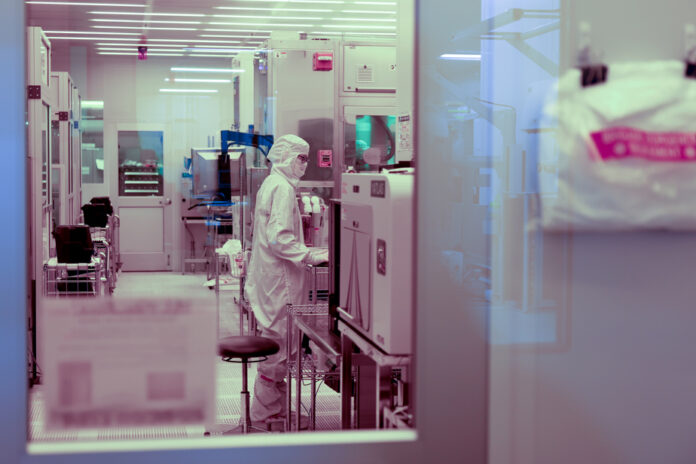(Bromont) If the pieces of the puzzle fall into place as planned, Quebec will welcome investments of some 10 billion in the coming years in the field of electronics, particularly power electronics, a specialty linked to electric vehicles.
It is partly in Bromont, the province’s electronics capital and headquarters of the Technum Québec digital technology innovation zone, that the action will take place.
“Our plans indicate that investments could reach nearly 10 billion in the next 5 to 10 years in Quebec or Canada,” specifies Normand Bourbonnais, CEO of the innovation zone, during a meeting with La Presse in the premises of C2MI, MiQro Innovation Collaboration Center of the University of Sherbrooke.
The goal of the media activity was to explain why the electronics sector will become the next battery sector for the Quebec economy.
With its electronics ecosystem, Bromont has a lot to offer. It has major industrialists on site (IBM and Teledyne Dalsa), research chairs at C2MI, students and a large labor pool. Bromont also has 12 million square feet ready to build, and the City has invested 4.5 million in infrastructure.
Semiconductors are components found in modern electronic equipment, such as cell phones and computers.
“Until now, the supply chain was global and the factories were local, concentrated in Asia. From now on, the chain will be regional, but the factories will be located everywhere, in Asia, Europe and North America,” explains Mr. Bourbonnais.
“There should be some great announcements within two years from major companies coming to set up here. These are settlements from 100 million to several billion. We’re talking about 500,000 square foot factories with clean rooms with around a thousand jobs,” he says, without naming any names.
But, he agrees, Quebec will probably not attract semiconductor factories. These are emerging in the United States, convinced by the US$52 billion of the CHIPS and Science Act, adopted in 2022.
Since the adoption of the law, there have been more than 23 announcements of new factories and 9 expansions in the semiconductor industry, for investments totaling 293 billion.
In New York State, one of the two industrial hubs in the United States along with the Southwest, Micron is building a semiconductor factory in Syracuse at an initial cost of US$20 billion (US$100 billion in 20 years). . Global Foundries is expanding its operation in Malta, near Saratoga Springs, for US$1 billion. A little further west, in New Albany, Ohio, Intel is also spending US$20 billion on an electronic chip factory.
Thanks to Albany NanoTech, the largest R&D center for smart microchips, New York State’s capital is in line to host the future multi-billion National Semiconductor Technology Center (NSTC). Mr. Bourbonnais is also going there on a mission in November.
It is no coincidence that President Joe Biden and Prime Minister Justin Trudeau spoke last March about the Albany-Bromont corridor in electronics, like the Detroit-Windsor corridor in the automobile industry.
“Americans make chips. The sensor portion [at Teledyne Dalsa] and the assembly portion [IBM Bromont] are two portions that we are working on here in Bromont and which complement American efforts, hence the idea of a corridor,” explains Marie-Josée. Turgeon, CEO of C2MI.
Similar complementarity exists in the battery sector. Battery and electric vehicle factories are in Ontario, while Quebec focuses on battery components.
An example of this complementarity is power electronics. “There are firms specializing in power electronics. It could be interesting for Quebec and Canada, says Mr. Bourbonnais. Power electronics are required for batteries. Every time we convert electrical current from alternating to direct, we need electronics that do this conversion. These are called power chips which will operate at much higher voltages. This is directly linked to the battery sector. We are moving into the battery sector at the same time as we are moving into the electronics sector. It’s a win for everyone. »
“Japanese firms rarely invest outside their country. Today there is an opening. A delegation is heading to Japan soon. We will meet all the players in the market segment. We think we have interest. Taiwanese companies have also come to visit us recently. They are very interested, but we are also talking about a period of 24 to 36 months,” said the boss of the Technum innovation zone.
This means that after Bécancour and the battery industry, foreign multinationals will soon learn to locate Bromont on a map.















